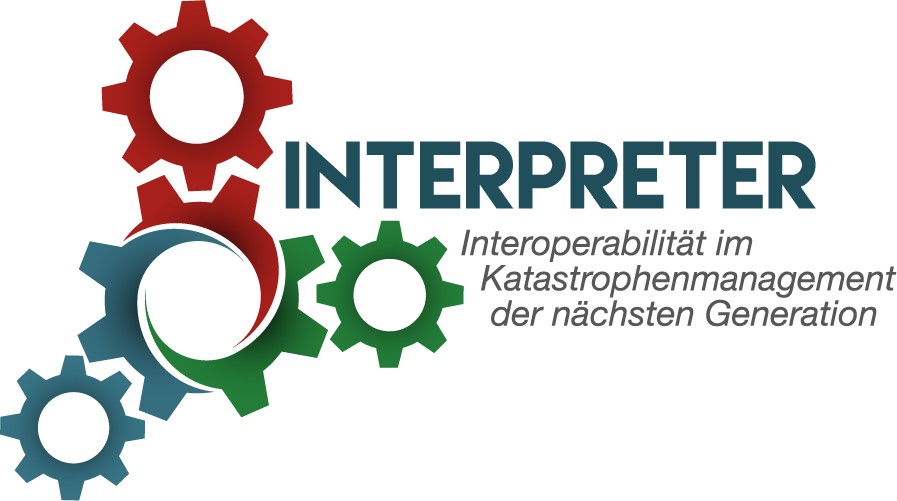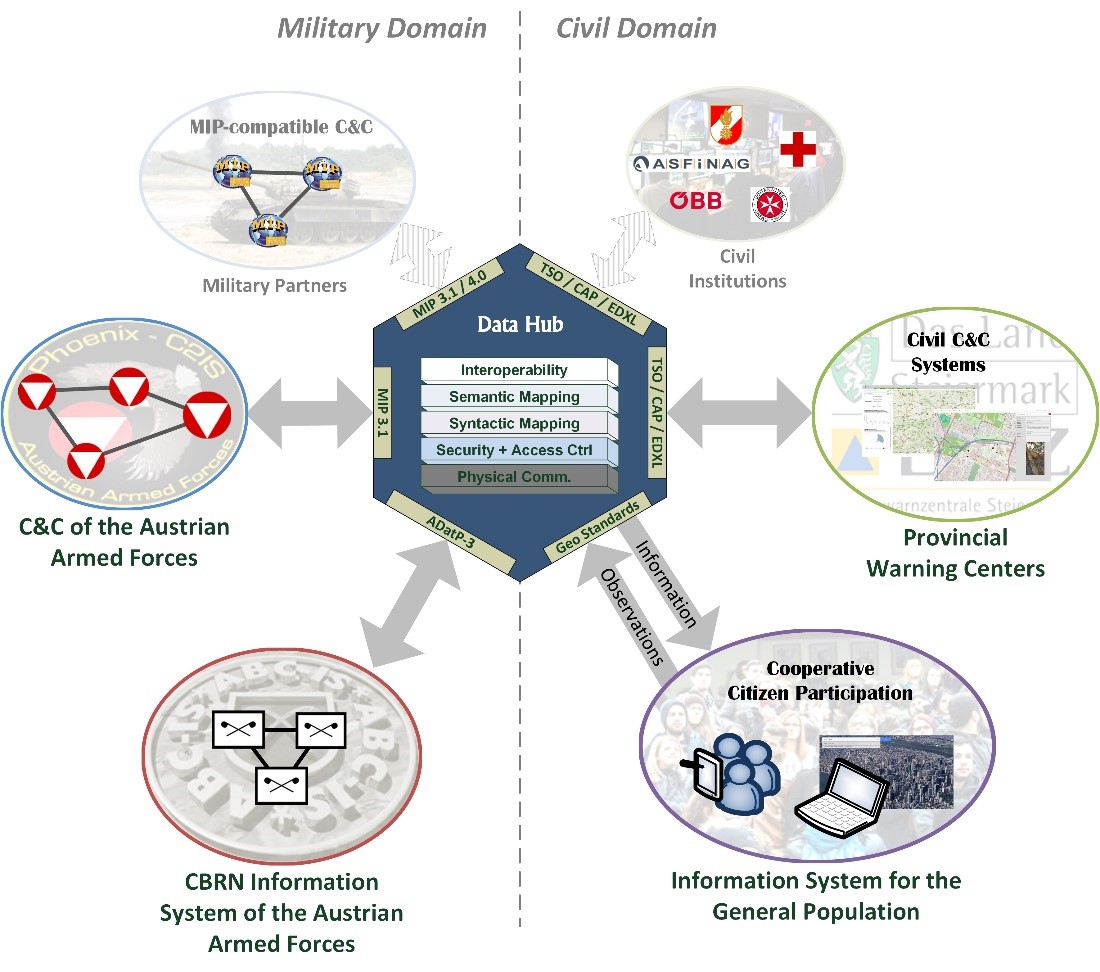THE CHALLENGE
In addition to national defence, providing aid in the event of natural disasters and accidents of exceptional magnitude is one of the most important constitutional tasks of the Austrian Armed Forces. In the course of such operations, the Austrian Armed Forces work together with civilian structures at all federal levels to deal with the situation in question, whereby the information and communications interoperability of civilian and military forces is of particular importance, especially at the level of provincial warning centres and the military commands of the individual provinces.
THE PROJECT
In INTERPRETER, a fully automated data exchange between civil and military (command and control) information systems was created using state-of-the-art software design methods to ensure the semantic integrity of these systems. The modular structure of INTEPRETER enabled generic extensibility of the system to be created, which is a basic prerequisite for sustainable usability. Additionally, an extended concept of IT-supported integration of the affected population into the process of crisis and disaster management was developed and evaluated in INTERPRETER. Thus, the current trend towards more citizen participation was taken into account and the potential for increasing the overall efficiency of crisis management in Austria was illuminated together with the GSK partners. For this purpose, the preferences of the population as well as those of the demand side were surveyed. This made it possible to define technical and organizational requirements that were considered in the architecture of the new system for civil-military interoperability. Since the participation of the population in the process of crisis and disaster management in all its phases affects many areas of legislation, a detailed analysis of the current legal framework was carried out and amendments were elaborated in some areas, which could remove the currently existing restrictions while respecting the strictest privacy protection mechanisms. The resulting INTERPRETER architecture was implemented in the project in the form of a proof-of-concept, which was evaluated in terms of its acceptance and efficiency in the subsequent evaluation phase with both the stakeholders and the public.
The practical relevance of INTERPRETER is not only given by the innovative core ideas of the project, but it rather opens up through the carefully balanced, interdisciplinary consortium, which strives to implement the envisioned new functionalities operationally in the medium term. For this reason, INTERPRETER represents an important milestone in the development of civil-military interoperability and makes a significant contribution to crisis and disaster management in Austria.
Project Coordinator
AIT – Austrian Institute of Technology GmbH
Project partners
- Federal Ministry of Defence and Sport Office of the provincial Government of Styria, Department of Civil Protection and Provincial Defence, Division Provincial Warning Centre
- Frequentis AG
- Syncpoint GmbH
- University Vienna, Faculty of Law, Department of International Law and International Relations of the Institute for Europe, International and Comparative Law, Working Group for Legal Informatics
- IFES Institut für empirische Sozialforschung GmbH
- IFES Feld GmbH
- JOANNEUM RESEARCH Forschungsgesellschaft mbH





